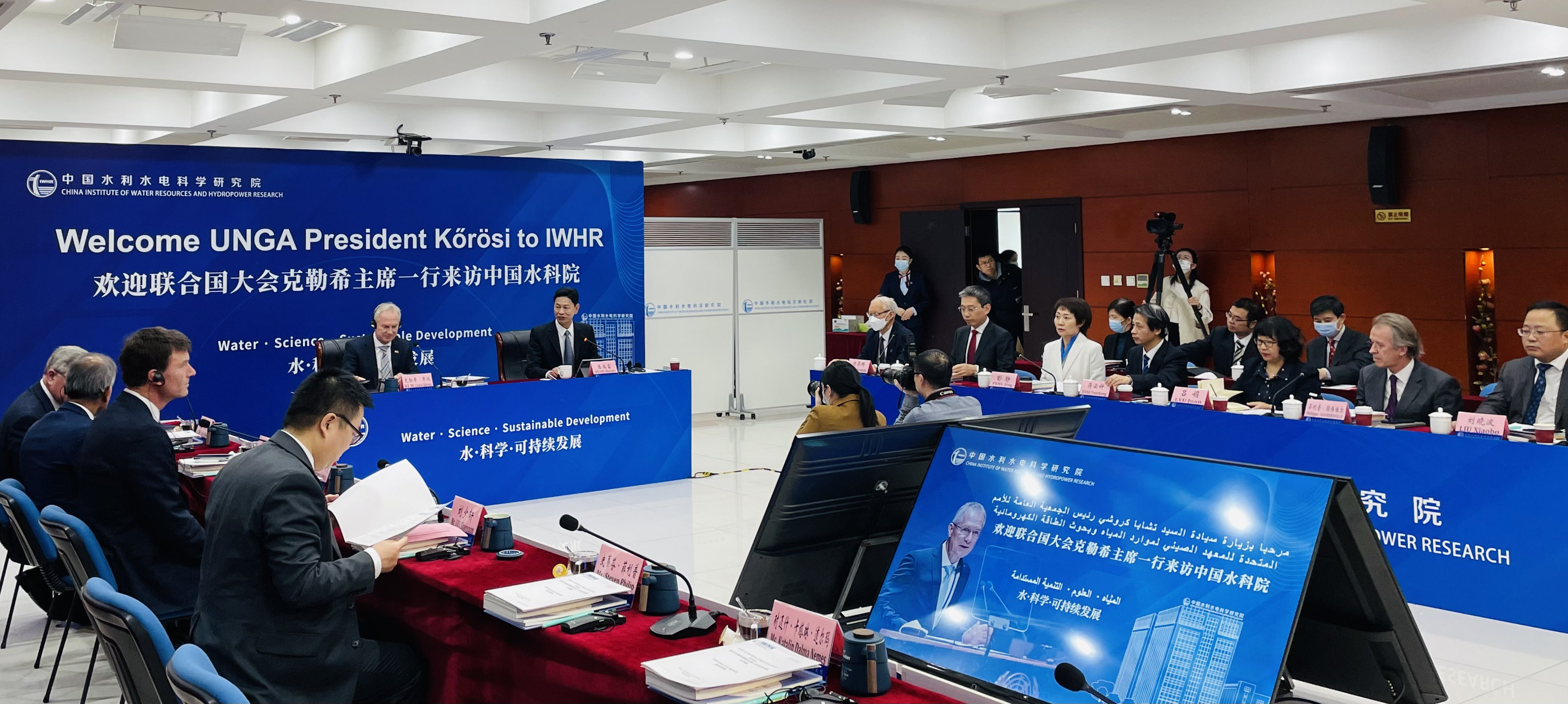During his official visit to China at the beginning of February, President Korosi and his delegation visited GWP China’s host institute, where they exchanged views with Chinese water experts and scholars on the topics of water for health, water for development, water for environment, water for cooperation, etc.
The UNGA Delegation raised a question to Prof Yunzhong JIANG, regional coordinator of GWP China and Head of Water Resources Dept. of IWHR, about 'three key terms' in the innovative process of solving water resources problems.
Prof. Yunzhong JIANG, Regional Coordinator, GWP China
Prof. JIANG answered them what are the three principles navigating an evolution of China’s water development, “supply is based on demand", ""demand is based on supply" and "demand depends on water". He explained water management in China has gradually optimized upon the diverse development periods. As he explained, 'In 'In the 1940s and 1990s, our supply must be rooted in the demand' as the water supply capacity was insufficient at the beginning of the founding of the People's Republic of China. We should vigorously improve the water supply capacity to meet the demand.
After that, from 1990s to 2010, the water demand was still increasing unreasonably after the improvement of the water supply capacity. It was hard to increase the demand, and we had to determine the demand based on the water supply capacity. It can be interpreted as 'demand relies on the supply'.
After 2010, currently, the ecosystem would be damaged when the water supply capacity exceeds the ecological bearing capacity. Thus, it is necessary to limit the demand instead of overwhelming water capacity. In other words, it refers to "the demand is based on water quantity".
The President’s visit was conducted amid the current global challenges, such as climate change and water crisis, the latter becoming a severe issue as about 400 million people are likely to be forced to leave their homes due to flood and drought disasters in the next twenty years, introduced by the President in his remarks. 
In response to the ongoing water challenges, the United Nations will convene the UN 2023 Water Conference, the second in its history since 1977, from March 22 to 24 to call on solidarity for sustainable water management among stakeholders worldwide. To meet the challenges, science-based evidence is a must and full participation of the science community is required, said the President. The entire Sustainable Development Agenda will benefit from the solutions worked out by the water science community of China and other UN member states, he noted.
